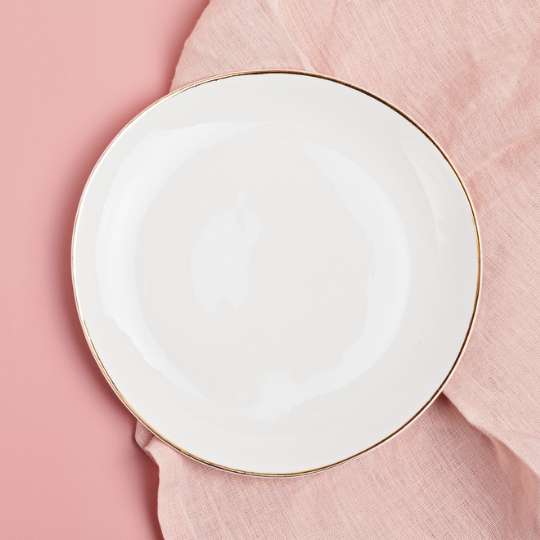

What is gut health?
When you think of the gut, what do you picture? For most of us, we think of the stomach – maybe some of us will picture our intestines too. But according to dietitian Dr Megan Rossi, gut health actually covers a much larger area.
“Gut health relates to the functioning of our entire digestive tract,” explains Dr Megan Rossi. “Essentially that’s the nine metre coil that delivers food all the way from entry to exit.” Of course, those nine metres are neatly wound within us (otherwise we’d be pretty uncomfortable) but it gives an insight into just how big the surface area of our digestive system is. And therefore, what an important role gut health plays within our bodies.
Why is gut health so important?
“The reason why gut health is so incredibly important comes down to a few key points,” says Dr Megan. “Saying “you are what you eat” is not all that correct. Instead, it’s more a case of “you are what you digest”. No matter how healthy the food you put into your body is, if you don’t have a good gut lining then that food can’t get from that tube into your blood to feed things like your heart and skin. So, to really make the most of your food and your digestion you need to have good gut health.” Without these vital nutrients absorbed fully into the body, we can’t function at our best, and processes will start to dwindle. Think of it like a plant. It needs the right conditions, and the right nutrients to flourish.
For most of us, we would assume that if we’re not suffering from any noticeable digestive problems, such as constipation or bloating, then we have good health. But it’s not quite so straightforward. “We are discovering that gut health is linked to so many other factors,” says Dr Rossi. “70% of our immune system lives along that 9 metre digestive tract. There’s also trillions of bacteria that live there and produce a range of beneficial chemicals, which we call our gut microbiome. It’s these bacteria that are doing things like communicating with our brains and our skin, so it’s not just about gut symptoms.” Consider, in addition to anything stomach-related, how often you’re getting sick and whether your mood is low.
Mood, especially, is an interesting area, and one that scientists and dietitians are slowly discovering more and more about. “The gut-brain axis is a sciency name for the two-way communication which occurs between the gut and the brain,” says Dr Rossi. “We have always known there is a link but more recently we have discovered a key player, and that’s the gut microbiome. We’re starting to see that those bacteria can impact our mental health. Clinical trials have now supported thoughts that nourishing the gut through a gut-boosting diet can have clinically relevant improvements on people’s mental health.” Who knew?
How to improve gut health
The key to improving your gut health is in a broad, balanced diet filled with lots of nourishing, nutritious foods. Instead of restricting your diet (unless allergies mean that’s necessary) think instead about what you can add to it to make sure every meal is bringing value. Taking the following into consideration will help:
Introduce fermented foods
In recent years fermented foods have seen a surge in popularity. “These include things like fermented dairy (such as live yoghurt and kefir), kombucha, kimchi and sauerkraut, and there is emerging evidence that they can be beneficial for our gut bacteria,” explains Dr Rossi. “But I appreciate that a lot of people don’t enjoy these flavours and there’s not enough evidence for me to say ‘you must eat fermented foods in order to have good gut health’. However, I do recommend dabbling in them at least a couple of times a week.”
Are you one of those people that don’t like the taste of fermented foods? There’s a case for persevering. “The fascinating thing is that our taste buds do regenerate every ten days or so,” continues Dr Rossi. “Certainly what I see at The Gut Health Clinic all the time is people who start to include more of these fermented foods and plants in general actually start to crave them. We think that the bacteria in our mouths (we call it our oral microbiome) play a role in food craving and food acceptance. It’s really exciting research.”
Incorporate prebiotics
There are trillions of bacteria that live in the gut, and it’s important that good bacteria outweigh the bad. Think of it like a restaurant. If one large table is being really noisy and rude to the waiting staff, then it ruins the experience for everyone else there. But, if you seperate the disruptive table out into smaller groups, the well-behaved diners will be in the majority, making the overall experience much better for all.
Enjoying an array of prebiotics in your diet is a great place to start for good gut health. “A prebiotic is essentially food for the bacteria, and most of them are types of dietary fibre. So, if you’re eating a broad range of different plants in your diet then you’re going to be getting enough prebiotics.” These include things like garlic, onion, beans and pulses. They feed the friendly bacteria, helping them to thrive.
Up your fibre
It’s no secret that fibre is good for our gut, helping to keep everything flowing nicely through our digestive systems. But that’s not it’s only benefit. “When we eat dietary fibre, which is in different plant based foods like legumes, fruit and whole grains, our bacteria eat the fibre and produce chemicals which have incredible anti-inflammatory properties,” says Dr Rossi. “It has been shown to get into our blood and have systemic benefits.” Good news for the gut, and the rest of our bodies.
Limit added sugar
Sugar might be delicious, but if we find ourselves filling up on too much added sugar (think sweets, chocolate etc) we typically don’t have enough room for the gut-loving high fibre foods such as whole fruit. Fruits still provide that feel-good sweetness, as well as hundreds of other plant chemicals that also look after our bodies and gut bacteria.
“The thing about foods high in added sugars is it comes back to digestion. If you have a sugar like sucrose, it gets absorbed very
Read, watch and be inspired...



